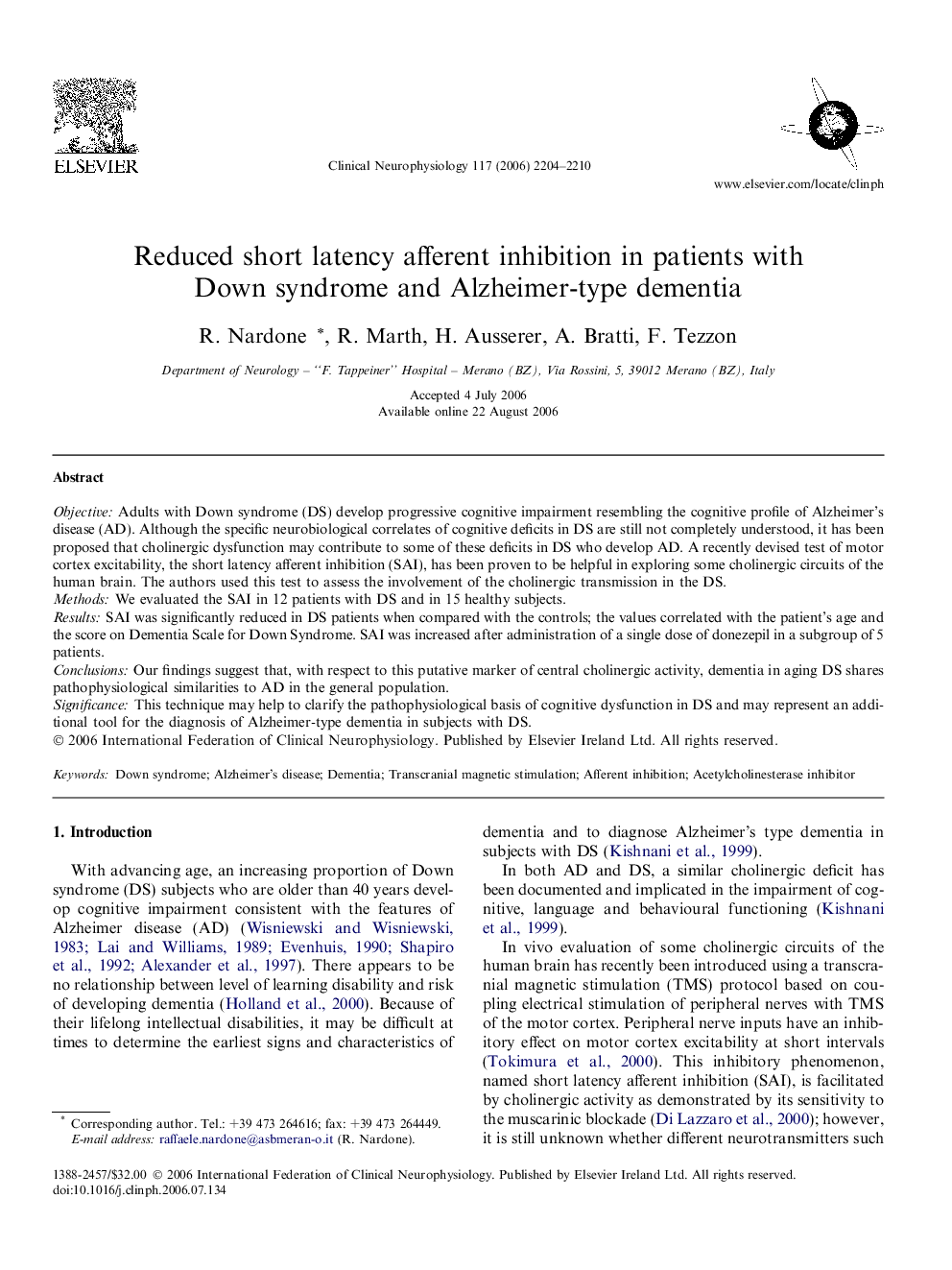| Article ID | Journal | Published Year | Pages | File Type |
|---|---|---|---|---|
| 3047668 | Clinical Neurophysiology | 2006 | 7 Pages |
ObjectiveAdults with Down syndrome (DS) develop progressive cognitive impairment resembling the cognitive profile of Alzheimer’s disease (AD). Although the specific neurobiological correlates of cognitive deficits in DS are still not completely understood, it has been proposed that cholinergic dysfunction may contribute to some of these deficits in DS who develop AD. A recently devised test of motor cortex excitability, the short latency afferent inhibition (SAI), has been proven to be helpful in exploring some cholinergic circuits of the human brain. The authors used this test to assess the involvement of the cholinergic transmission in the DS.MethodsWe evaluated the SAI in 12 patients with DS and in 15 healthy subjects.ResultsSAI was significantly reduced in DS patients when compared with the controls; the values correlated with the patient’s age and the score on Dementia Scale for Down Syndrome. SAI was increased after administration of a single dose of donezepil in a subgroup of 5 patients.ConclusionsOur findings suggest that, with respect to this putative marker of central cholinergic activity, dementia in aging DS shares pathophysiological similarities to AD in the general population.SignificanceThis technique may help to clarify the pathophysiological basis of cognitive dysfunction in DS and may represent an additional tool for the diagnosis of Alzheimer-type dementia in subjects with DS.
